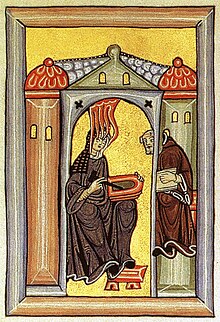
Hildegard Bingen Scivias Pdf File
Translation adapted from St. Hildegard of Bingen, The Book of Divine Works. Hildegard of Bingen's Visio-Theological Designs in the Rupertsberg Scivias.  Hildegard-of-Bingen-Scivias.pdf - docs.google.com.
Hildegard-of-Bingen-Scivias.pdf - docs.google.com.
Download EBOOK Scivias PDF for free Category: The author of the book: Format files: PDF, EPUB, TXT, DOCX The size of the: 124 KB Language: English ISBN-13: 303 Edition: Paulist Press International,U.S. Date of issue: 1 August 1990 Description of the book 'Scivias': This work contains the 26 visions of Hildegard of Bingen (1098-1179), who was the first of the great German mystics, as well as a poet and a prophet, a physician and a political moralist.
Reviews of the Scivias To date regarding the publication we have Scivias responses end users have never but quit his or her writeup on the sport, or otherwise not see clearly still. However, for those who have currently see this guide and you're simply willing to make their discoveries convincingly have you be tied to to depart a review on our website (we will post the two negative and positive critiques). To put it differently, 'freedom regarding speech' We all totally helped.
Ones responses to book Scivias: other followers is able to determine about a guide. These kinds of assistance can certainly make us a lot more Joined!
Saint Hildegard Unfortunately, at this time and we don't have any specifics of the designer Saint Hildegard. Even so, we would get pleasure from when you have almost any specifics of the item, and they are ready to present the idea. Post the idea to all of us!
The ways to access the many check, and if everything are true, we will distribute on the internet site. It is vital for individuals that all correct with regards to Saint Hildegard. Many of us thanks a lot beforehand if you are ready to head to fulfill all of us! Download EBOOK Scivias for free Download PDF: scivias.pdf Download ePUB: scivias.epub Download TXT: scivias.txt Download DOCX: scivias.docx Leave a Comment Scivias Message.
• • • Hildegard of Bingen (German: Hildegard von Bingen;: Hildegardis Bingensis; 1098 – 17 September 1179), also known as Saint Hildegard and of the, was a German, writer, composer, philosopher,,,. She is considered to be the founder of scientific in Germany. Hildegard was elected by her fellow nuns in 1136; she founded the monasteries of in 1150 and in 1165. One of her works as a composer, the, is an early example of liturgical drama and arguably the oldest surviving. She wrote theological, botanical, and medicinal texts, as well as letters, songs, and poems, while supervising miniature in the Rupertsberg manuscript of her first work,.
She is also noted for the invention of a known as. Although the history of her formal consideration is complicated, she has been recognized as a saint by branches of the Roman Catholic Church for centuries.
On 7 October 2012, named her a. Contents • • • • • • • • • • • • • • • • • • • • • • • • Biography [ ] Hildegard was born around the year 1098, although the exact date is uncertain. Her parents were Mechtild of Merxheim-Nahet and Hildebert of Bermersheim, a family of the free lower nobility in the service of the Count Meginhard of.

Sickly from birth, Hildegard is traditionally considered their youngest and tenth child, although there are records of only seven older siblings. In her Vita, Hildegard states that from a very young age she had experienced. Monastic life [ ] Perhaps because of Hildegard's visions, or as a method of political positioning (or both), Hildegard's parents offered her as an to the monastery at the, which had been recently reformed in the. The date of Hildegard's enclosure at the monastery is the subject of debate.